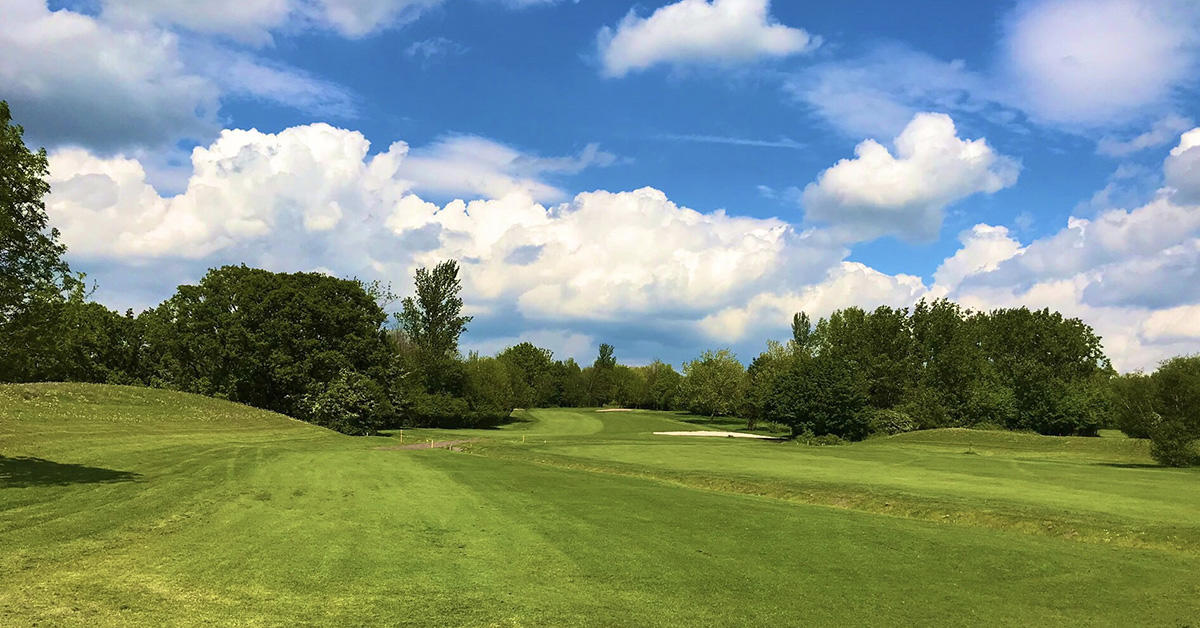- Homepage
- News and Features
- Essential Maintenance update - 17 April
Essential Maintenance update - 17 April

Image by Chris Clements at Risebridge GC
The following update (Version 2) to the Essential Maintenance Statement for Golf Courses is published in view of the extension of the UK Government regulations, the changing seasonal climatic conditions and the need to utilise the time of reduced greenkeeping teams most effectively. These updates are not a justification to increase staff numbers beyond those currently utilised. Any substantive updates from Version 1 are highlighted by an asterisk * in the text below.
Essential Maintenance Statement for Golf Courses during COVID-19 Outbreak
The following industry statement, produced in association with BIGGA, sets out a reduced, essential maintenance regime for greenkeeping that limits activity on the golf course while protecting workers, jobs and securing the playing surfaces at golfing facilities. When a resumption in play is allowed, this will be vital to get the millions of golfers back onto our courses, benefiting their physical and mental wellbeing.
The UK’s £2bn GVA golf industry is only sustainable if greenkeepers continue to work, but it is paramount that this is done in a safe and secure environment.
Our industry statement outlines those treatments considered essential for the safe maintenance of a golf course during the current government restrictions. It is accepted that golf courses exist in many different forms, on many different soil types and in differing landscapes and that this guidance may require adaptation.
Working Practices
The primary consideration must be the health and wellbeing of greenkeeping staff. All golf facilities should implement stringent measures to ensure staff members are not at risk. The number of greenkeeping staff and the amount of time they are at work should be kept to a minimum and be tailored to fit with the agreed essential maintenance programme.
Measures should include but are not limited to:
- Focus on hygiene and social distancing
- Ensure staff members work separately
- Allocate individual machinery to one worker only
- If multiple staff are on site, then stagger working hours and break times
- Limit or prohibit use of communal areas
- Regularly disinfect any surface that is contacted e.g. door handles, fuel pumps, communal machinery
- Ensure there is a robust lone working policy
Mowing
Greens should be mown according to the rate of growth to a maximum of three times per week. Dew removal should be considered on non-mowing days as required to prevent disease spread.
Tees and green surrounds should be mown according to the rate of growth to a maximum of twice per week.*
Fairways should be mown according to the rate of growth to a maximum of once per week.
Managed roughs and grass paths should be mown according to need to a maximum of once per week.*
Only roughs considered to be in direct play should be mown allowing for naturalisation to areas largely out of play.
The height of cut adopted for all these areas is site specific but the elevation of the cutting height on fine turf areas is advised to minimise unnecessary stress on the turf. The application of plant growth regulators during periods of excessive growth is acceptable.* The aim of the above operations is to maintain uniformity, density, texture and health to allow surfaces to be quickly brought back to an appropriate playing standard once play resumes.
Irrigation and Nutrition
Irrigation and nutrition should be carried out as necessary but with the objectives of keeping the turf alive, maintaining a full sward and preventing turf thinning. Avoid excesses of either input, which will only serve to promote unnecessary growth and necessitate more maintenance. Utilise best practice methods where available, such as wetting agent application, use of moisture probes and surface aeration, to optimise efficiency of water use on key playing surfaces.*
Construction and Renovation
Starting construction or renovation projects is not considered essential at this time. The completion of unfinished winter projects that are already underway is permissible but only if this can be done safely by greenkeeping staff, and without increasing staffing numbers.*
Machinery and Equipment Maintenance
This should be carried out as required to ensure that essential equipment is kept safe and operational.
Other Maintenance
Operations such as maintaining bunkers, penalty areas and wider practice facilities and aerating, top dressing and spraying on a routine basis are not considered essential at this time. However, it is conceivable that occasional spraying or the application of a cultural practice, such as aerating, top dressing and overseeding, may be considered essential at certain times and in some circumstances (for example, to control or manage acute pest, weed or disease issues or other localised disorders).*
Updates
Given the fluidity of the current situation there may be a requirement to update and re-issue this guidance in respect of future government advice.
Author

